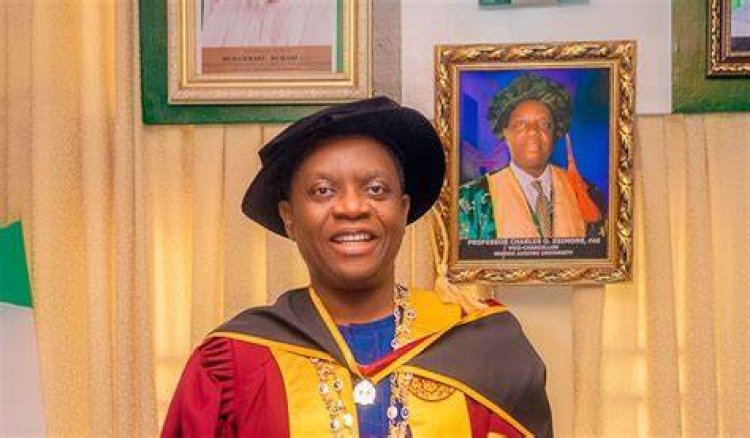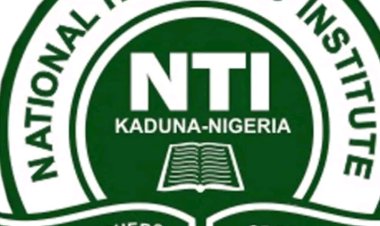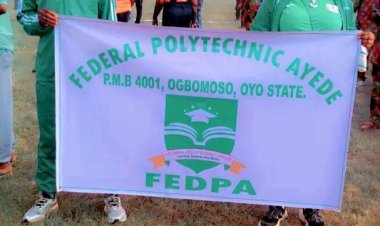UNIZIK Vice Chancellor Prof. Charles Esimone, Supports No Work, No Pay Policy
UNIZIK VC advocates "no work, no pay" policy for striking lecturers, emphasizing ICT integration and alternative funding models to enhance Nigerian universities' competitiveness.

In a recent interview, Charles Esimone, the Vice-Chancellor of Nnamdi Azikiwe University (UNIZIK), expressed his support for the implementation of a "no work, no pay" policy for striking lecturers. Esimone, who is set to conclude his five-year tenure in June, emphasized the need for innovative measures to address the challenges facing Nigerian universities.
Under Esimone's leadership, UNIZIK has seen significant strides towards academic excellence and institutional revitalization. Esimone outlined his vision, known as Project 200, aimed at elevating UNIZIK's global ranking and enhancing its competitiveness. Through strategic initiatives focusing on academic excellence, community service, administrative exploits, discipline, and advancement, UNIZIK has made notable progress in its global ranking.
YOU MISSED: UNIZIK VC Prof Charles Esimone, Urges Autonomy & Endowment for University Growth
Esimone highlighted the importance of embracing Information and Communication Technology (ICT) for enhanced teaching and learning experiences. He emphasized the integration of ICT tools in lecture delivery, facilitating a more interactive and efficient learning environment. Additionally, Esimone stressed the significance of adequate funding for educational institutions, urging increased government support and private sector involvement.
READ ALSO: UNIZIK Bids Farewell to Iconic Registrar, Barr. Philomena Iwara Okoye

Addressing the recurrent issue of strikes in the Nigerian educational sector, Esimone acknowledged the need for advocacy beyond traditional methods such as strikes. He proposed alternative approaches, including leveraging private sector partnerships and alumni endowments to supplement government funding.
YOU MAY LIKE: Ojukwu University Theatre Arts Department Celebrate World Theatre Day
Furthermore, Esimone praised the interventions by the Tertiary Education Trust Fund (TETFund) in advancing research and infrastructure development in Nigerian universities. He cited various projects at UNIZIK funded by TETFund, underscoring the impact of such initiatives on academic and research facilities.
In conclusion, Esimone expressed satisfaction with the progress made during his tenure and offered advice to his successor, emphasizing the importance of strategic partnerships, innovative funding models, and infrastructure development for sustainable growth in the Nigerian higher education sector.
The interview with Esimone provides valuable insights into the challenges and opportunities facing Nigerian universities, highlighting the imperative for collaborative efforts to enhance the quality and competitiveness of higher education in the country.

 Mary Nwaeze
Mary Nwaeze 



